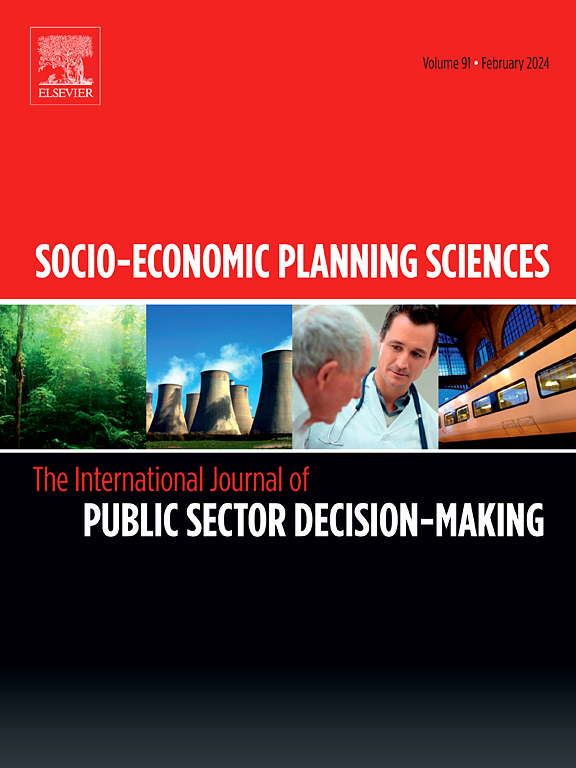绿色宏观审慎实施行动的必要环节,以提高欧洲的循环绩效:来自PVAR的新见解
IF 5.4
2区 经济学
Q1 ECONOMICS
引用次数: 0
摘要
预计绿色宏观审慎政策将是通过在经济增长和环境可持续性之间取得平衡来维持可持续发展的重要工具。我们的研究使用面板向量自回归(PVAR)模型来检验2005年至2022年间28个国家的绿色宏观审慎政策与循环绩效之间的关系。研究结果表明,绿色宏观审慎政策在短期内不影响循环,但在长期内提高了循环效率。此外,虽然对经济增长冲击的即时反应可能具有挑战性,但随着时间的推移,这些政策的长期效益会变得明显。此外,循环度在此期间受到绿色宏观审慎波动的不利冲击,而反向关系为强正相关。这些结果强调了循环政策和经济因素之间复杂的相互作用。这突出了需要更强大、设计良好的政策,使绿色宏观审慎措施足够强大,以支持长期的环境和经济目标。本文章由计算机程序翻译,如有差异,请以英文原文为准。
The required link for actions on green macroprudential implementations to improve circularity performance in Europe: Fresh insights from PVAR
Green macroprudential policies are expected to be essential tools for maintaining sustainable development by striking a balance between economic growth and environmental sustainability. Our study used a Panel Vector Autoregressive (PVAR) model to examine the relationship between green macroprudential policies and circularity performance from 28 countries between 2005 and 2022. Our findings reveal that green macroprudential policies do not affect circularity in the short term but enhance its efficiency in the long term. Furthermore, while the immediate response to economic growth shocks might be challenging, the long-term benefits of these policies become evident over time. Additionally, circularity received adverse shocks from green macro-prudential volatility during the period, while the reverse relationship was strongly positive. These results underscore the complex interplay between circularity policies and economic factorsThis highlights the need for stronger, well-designed policies that make green macroprudential measures robust enough to support long-term environmental and economic objectives.
求助全文
通过发布文献求助,成功后即可免费获取论文全文。
去求助
来源期刊

Socio-economic Planning Sciences
OPERATIONS RESEARCH & MANAGEMENT SCIENCE-
CiteScore
9.40
自引率
13.10%
发文量
294
审稿时长
58 days
期刊介绍:
Studies directed toward the more effective utilization of existing resources, e.g. mathematical programming models of health care delivery systems with relevance to more effective program design; systems analysis of fire outbreaks and its relevance to the location of fire stations; statistical analysis of the efficiency of a developing country economy or industry.
Studies relating to the interaction of various segments of society and technology, e.g. the effects of government health policies on the utilization and design of hospital facilities; the relationship between housing density and the demands on public transportation or other service facilities: patterns and implications of urban development and air or water pollution.
Studies devoted to the anticipations of and response to future needs for social, health and other human services, e.g. the relationship between industrial growth and the development of educational resources in affected areas; investigation of future demands for material and child health resources in a developing country; design of effective recycling in an urban setting.
 求助内容:
求助内容: 应助结果提醒方式:
应助结果提醒方式:


